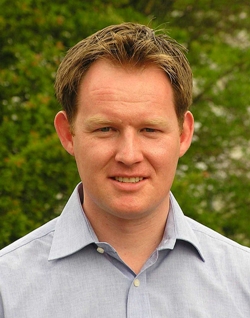
Steve Brown* asks: are we heading into a groundwater resources drought?
Geoscientist Online 16 December 2012
Groundwater resources in many parts of the English Midlands and beyond are moving in to a critical period. We are experiencing some of the lowest levels on record (approaching or equalling previous drought-period critical levels, in 1976, 1992, 1997 & 2006) with declining trends across all aquifers. This is very unusual for the time of year, as resources are normally now being topped up by winter rainfall. The groundwater hydrograph is usually on the way up, not down!
This is worrying for water resource planners, water supply companies and private abstractors alike, indeed everyone who relies on this most precious of resources - and last, but certainly not least, the environment generally. It’s not until the taps stop running that the public realises something is seriously wrong. We live in a society where the population expects to turn on the tap and see water for drinking and washing pour forth. It’s seen as a right.
All of our aquifers are currently showing signs of stress, from the Principal Sherwood Sandstone and Jurassic limestone aquifers right through to the lesser yielding Mercia Mudstone and Silurian aquifers. The storage capacity of the principal aquifers is helping to buffer this, while some poorer aquifers have now run completely dry or reached critical levels. There are of course exceptions to the rule, depending on which part of the region and country you live in. But questions are being asked about how this comes about.
The low groundwater levels we are currently experiencing are a direct consequence of drier winters. Erratic weather patterns in the spring, summer and autumn months of this year (2011) have also contributed, with many reports and phone calls being received from concerned members of the public and industrial water users as boreholes, wells, springs, rivers and wetlands have dried up. Is this an entirely natural process? Is it a consequence of climate change or local climate patterns? Is a combination of low recharge vs. abstraction in a critical low flow period compounding these issues? Our reliance on water as a nation is never so apparent as when its supply fails.
Key indicator groundwater boreholes used for drought monitoring in West Area of the Midlands Region, Anthony’s Cross in Worcestershire & Heathlanes in Shropshire, are both showing declining levels, with their status over the last few months reaching ‘Exceptionally Low’ (some way below 1996/98 drought levels). This is of real concern for next year in particular. Pray for rain to reverse this trend.
Based on evidence to date, if groundwater resources do not recover into the coming months (and way into 2012, particularly through the critical winter 2011/12 recharge period) we will be in for a very interesting 2012. Demand will outstrip what little groundwater will be available.
Strategies for dealing with this developing situation need to be considered now to protect the environment as well as water users who depend on this most precious resource. Olympic Year 2012 could also go down in history as the next Great Drought.
Further reading on this site:
* EurGeol Steve Brown FGS CGeol, Environment Agency, West Area, Midlands